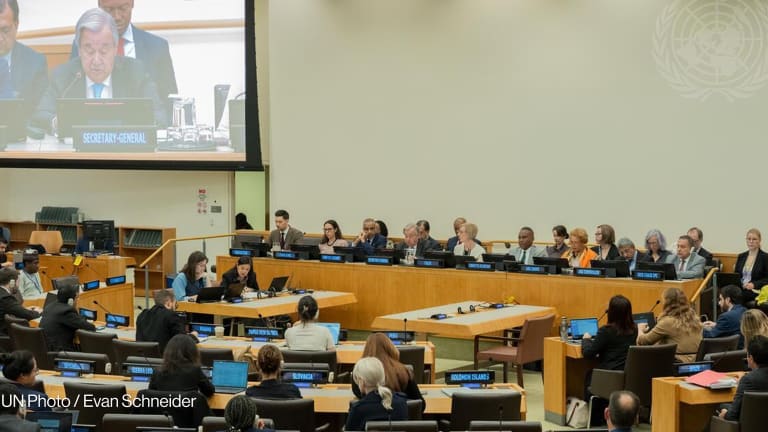A new internal United Nations evaluation out last week is remarkably critical of the U.N.’s ability to deliver coherent development support. The evaluation comes at a time when the UN80 Initiative — triggered by a funding collapse, and currently the dominant theme at the U.N. — shines a glaring light on organizational deficits while providing a window of opportunity for drastic reforms.
The findings of the evaluation confirm what many observers have assumed — that the U.N. development system’s coordination function is mostly “performative.” This contrasts with U.N. reports that have, based on the U.N.’s own surveys, fostered the narrative that “the direction of travel remains positive on the results of the reforms,” which refers to the U.N. development system reform of 2018.
The evaluation, carried out by the U.N. Sustainable Development Group System-Wide Evaluation Office, reviewed how far the U.N. has come in building a “new generation” of country teams since 2019.








